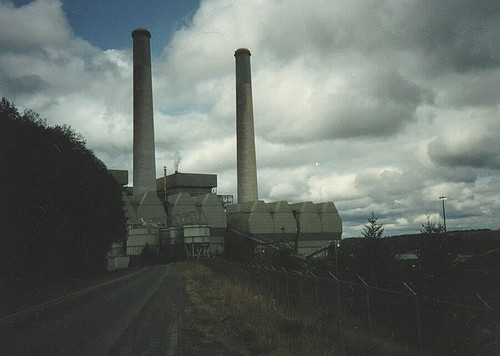I think a lot of people like to pick on places like Texas because of the very public way in which religion, politics, history, and science have been mixed up in discussions of education and teaching standards. An article I received today in the mail [1] suggests that we shouldn’t pretend that issues about science, religion, and education are isolated to places like Texas, Kansas, and Pennsylvania.
Let me begin this discussion of the article by stating two of my own personal beliefs regarding issues of science, religion, and education. First, everybody is entitled to their opinion about the origin of the universe and/or life – liberty is the essence of democracy. However (and second), opinions that are either irrelevant to a scientific understanding of nature, or which contradict observations of the natural world, have no place in shaping science education policy.
The news article discusses a new school board member in my hometown school district who explicitly denies that evolution has a role in shaping human development. Quoting from the article,
“To him, the idea that humans and apes share a common ancestor takes ‘a whole lot more faith than believing there was a creator who set all these things in motion and allows us to operate under free will.'” [1]
“‘I sort of got stuck on one thing with [several high school science teachers and school administrators], which was basically the teaching of evolution in the schools and how it tends to ride roughshod over the fact that various religions — Christian, Hebrew, Muslim — hold a theistic world view . . . Evolution is basically an assumption that there is no God.'” [1]
Let’s start by asking whether or not any of these views matter. To first order, the answer is “no,” so long as this isn’t the beginning of an attempt to alter science teaching in my home district. Personally, I don’t care if these views result in the creation of a theology/philosophy curriculum that gives students the chance to explore different theological world views, creation myths, and their impact on history and society. But, if this is the start of an attempt to put pressure on science teachers in my home district, I take SERIOUS issue.
I, like many others, am a product of the excellent science education offered by the Region 17 public school district. I began a love of physics as a freshman in high school, thanks in large part to my physics teacher, my father, and a NOVA episode entitled “The Creation of the Universe.” It was in the science classes where I found that I could “do” and “explore.” In physics, I could do great experiments and had the freedom to write lab reports with a computer (in 1992!). In chemistry, there were the usual smelly labs but also the chance for to be a lab assistant for two semesters. In biology, there was the usual biology class but also a special “DNA” class sponsored by Pfizer and run by one of the science faculty. That class actually let me run my own DNA tests, make new bacteria, etc. My concern, therefore, is only that the quality of the science education is under threat by theological ideology which fundamentally misunderstands science and mislabels it as arbitrary philosophy.
Science is the process of making observations of the natural world, offering hypotheses that explain those observations, testing those hypotheses with further observation or controlled experimentation, and the development of theories from successful hypothesis testing. This is a messy, non-linear business, where theories are not just “ideas,” but battle-tested predictive frameworks that develop new knowledge from previously disconnected observations.
What worries me most is the characterization both of science and evolution illustrated by the quotes above. Science and evolution don’t require the non-existence of a creator, and to say that is to pretty much fundamentally make-up stories about science. Science is only a means by which explanations of the natural world can be formulated, tested, and propagated. Scientific truths are those things which are apparent to any observer under the same conditions, usually written as mathematical statements. God can still have started the whole thing, and God can still have a role in the universe. But the point is that if God is in there mucking about with things as he pleases, that’s neither reproducible (in the observing) nor relevant. Therefore, science and evolution don’t deny the existence of a God – they merely don’t require it. That’s a very different statement.
I also find it a little funny that the district that started a DNA class now has a school board member who believes that it’s more likely that humans appeared fully formed in their present state and can’t be a variation on apes. To deny things like evolution and the observed age of the universe is, to me, to deny the work of the creator and is thus an affront to that creator. But the nice thing about science is that it frees me from worrying about such things.
It’s too bad this newest school board member so misunderstands the role and nature of science, because there is unique self-enlightenment in a scientific understanding of nature. There is deep beauty in the simple fact that Chimpanzee DNA is 99% similar to human DNA. There is real wonder – real child-like mind-numbing wonder – in how so little a set of variations is needed to create a species like ours . . . one which can evolve over thousands of years only to convince itself of the opinion that the whole thing never happened.
[1] http://www.courant.com/news/education/hc-evolution-haddam-school-boar.artmar15,0,4249837.story



